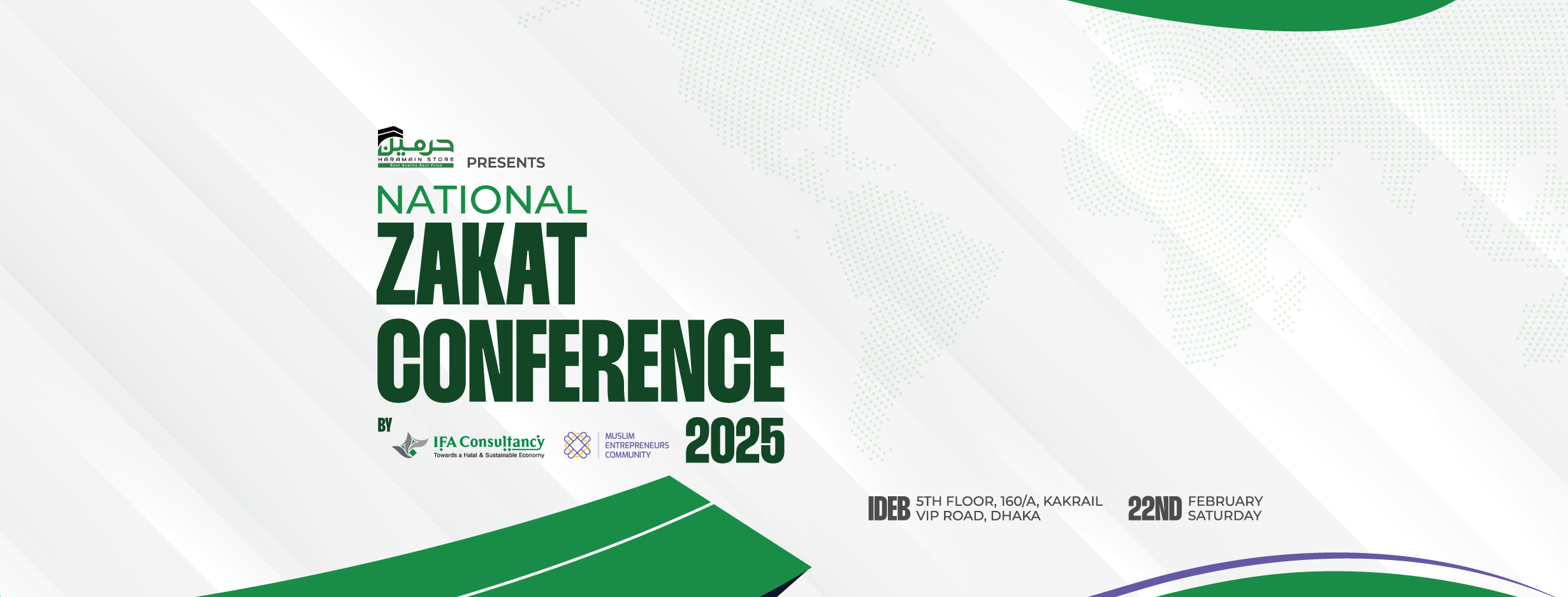National Zakat Conference 2025
IFA Consultancy and Muslim Entrepreneurs Jointly Organize the Groundbreaking Zakat Conference 2025
IFA Consultancy and the Muslim Entrepreneur community collaboratively organized a successful Zakat Conference 2025. The event featured esteemed speakers who shared invaluable knowledge on Zakat, including its proper calculation from business balance sheets. A particularly crucial session emphasized the need for every company to have Zakat auditors and specialists—just like tax professionals. The conference also addressed ‘Ushr, explaining how to collect and calculate it, and reigniting its significance in today’s agricultural economy.
A Landmark Gathering of Faith, Finance, and Social Responsibility
In a remarkable collaboration, IFA Consultancy and the Muslim Entrepreneur community successfully hosted the Zakat Conference 2025—a powerful gathering aimed at reviving, clarifying, and strengthening the understanding and application of Zakat and ‘Ushr in modern contexts.
This landmark event attracted Islamic scholars, financial experts, researchers, business professionals, and conscious Muslims from across the country—united by a shared purpose: to deepen awareness and responsibility toward Islamic financial obligations.
Empowering Knowledge on Zakat for Individuals and Businesses
Throughout the event, renowned speakers and scholars offered insightful sessions on:
The essence of Zakat
Its calculation and distribution
Practical implementation in personal and corporate finance
From individuals seeking personal Zakat guidance to entrepreneurs managing complex financial portfolios, the conference catered to all levels of understanding.
Key Insights on Zakat from Business Balance Sheets
A central focus of the conference was accurate Zakat calculation for businesses—an area often misunderstood. Financial experts shared how to:
Identify zakatable assets: cash, stock-in-trade, receivables, investments, etc.
Exclude liabilities appropriately
Evaluate inventory and short-term assets
Maintain annual records in accordance with the Islamic lunar calendar
This session helped businesses understand that Zakat is a structured economic duty, not just a personal matter.
The Growing Need for Zakat Auditors and Specialists
A compelling call to action was the institutionalization of Zakat auditing within businesses. Much like tax consultants, companies are encouraged to appoint:
Zakat auditors
Shariah finance specialists
The benefits of this professional approach include:
Accurate, Shariah-compliant calculations
Transparency and ethical accountability
Avoidance of underpayment or errors
Enhanced trust with stakeholders and the Muslim community
Exploring Historical and Global Zakat Models
Participants explored how Zakat and ‘Ushr were institutionalized during:
The Khilafat (Caliphate) Era:
Efficient, centralized collection
Fair distribution with minimal bureaucracy
Preservation of economic justice
Modern-Day Models:
National Zakat boards in Muslim-majority countries
Use of digital tools and legal frameworks
Impact through healthcare, education, poverty alleviation, and microfinance
These case studies offered insights into how such systems could be localized for greater impact.
Conclusion: A Transformative Movement Begins
The Zakat Conference 2025 was more than just a scholarly gathering—it was a catalyst for:
Spiritual revival
Financial responsibility
Community empowerment
By blending traditional Islamic principles with modern financial practices, the event empowered individuals, business leaders, and policymakers to fulfill their divine duties with confidence, precision, and sincerity.
From personal wealth to corporate assets, and from farmlands to factories, this conference emphasized that Zakat and ‘Ushr are not merely acts of charity—they are divine systems of justice that, when properly implemented, can transform society and uplift entire communities.

